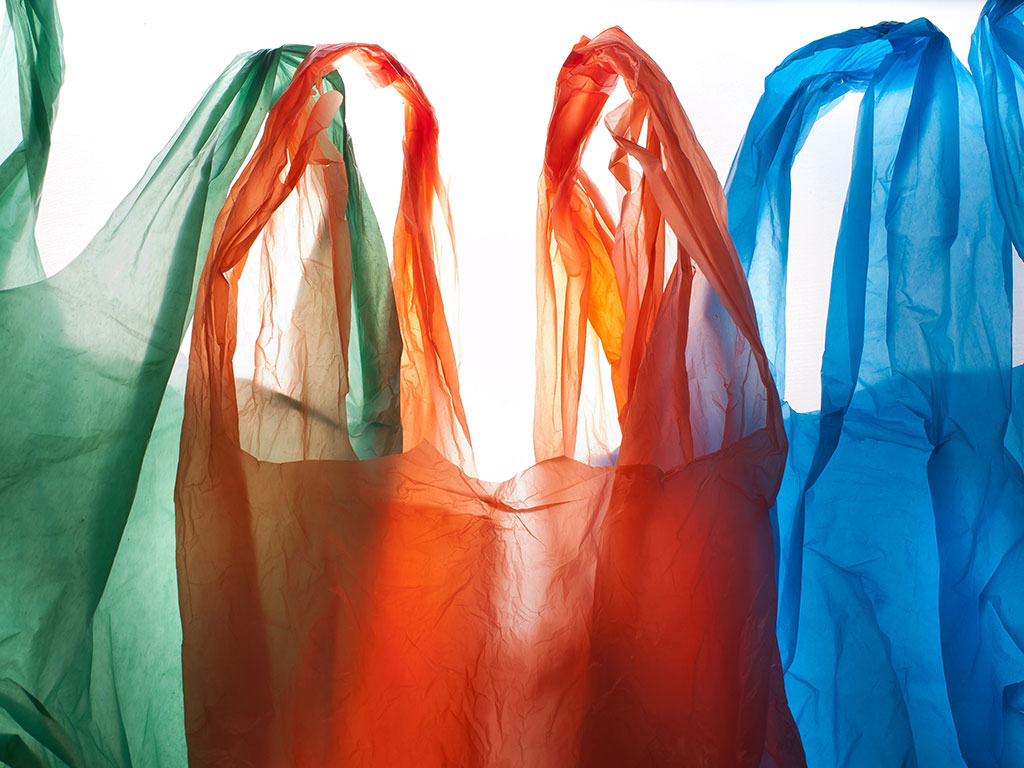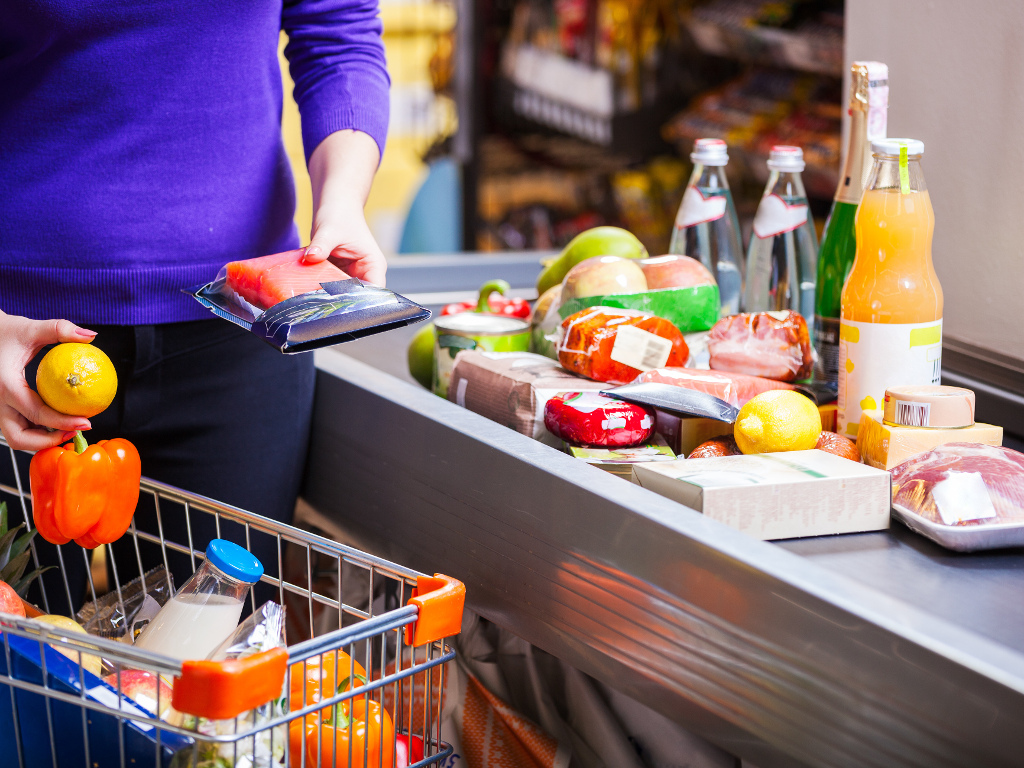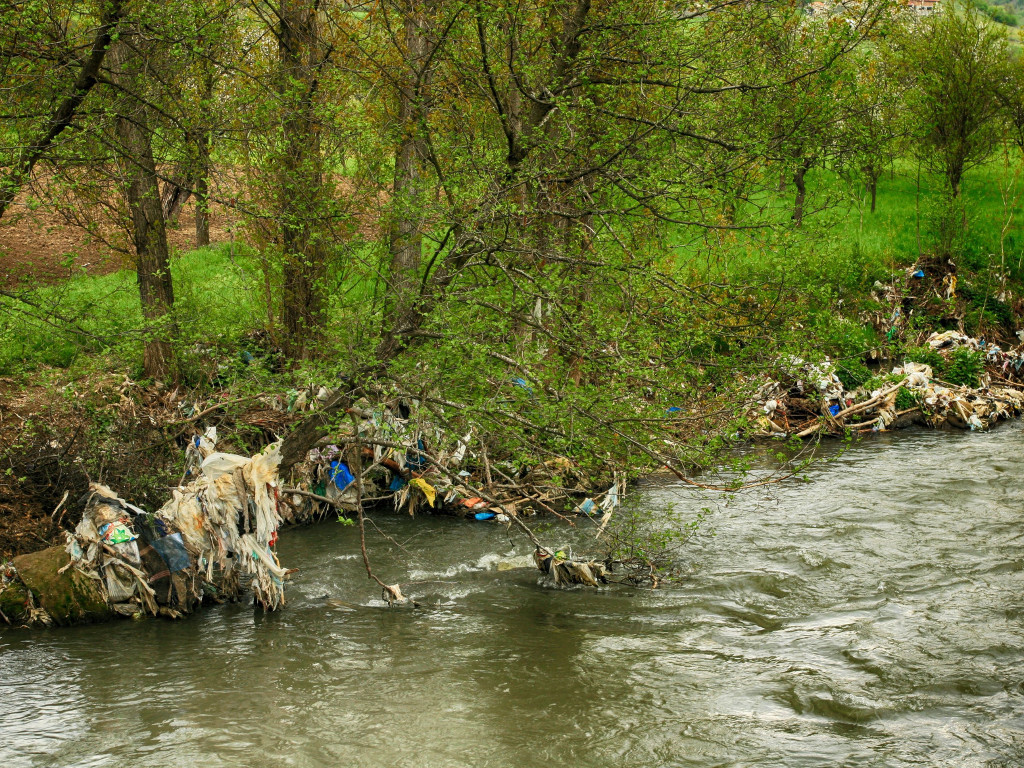Potential ban on plastic bags in Serbia – Some store chains already start charging
Source: eKapija
 Sunday, 22.04.2018.
Sunday, 22.04.2018.
 15:15
15:15
 Sunday, 22.04.2018.
Sunday, 22.04.2018.
 15:15
15:15
Illustration (Photo: Jozef Sowa/shutterstock.com)

In order to decrease the usage, the European Union adopted a decree which limits the maximum annual use of these bags to 90 per person by the end of 2019 and 40 by 2020.
This is one of the EU directives that Serbia will need to implement on its road to the membership in the community, and, as representatives of the Ministry of Environmental Protection said at the panel discussion about charging for plastic bags at store chains, held on Thursday, April 19, 2018, in Belgrade, in the organization of the InStore Magazine, “the ministry’s policy is such that the end goal is to stop using plastic bags”. It is not yet known, however, whether the use of plastic bags will be banned and when. The ban would pertain to thin, non-degradable plastic bags.
Many countries have already fully banned their use already, that is, they’ve implemented fees, and according to representatives of the Ministry of Environmental Protection, a full ban often occurs as a consequence of an inadequate methodology of calculating the usage of plastic bags per user. Some countries, when they are unable to define a precise methodology that would monitor whether the number of plastic bags used per citizens annually is exceeded, decide to ban them completely.
In order to reduce the production of plastic bags, Serbia implemented fees several years ago. The fee for the production of biodegradable plastic bags, including additives, amounts to RSD 1,300 per ton, and the fee for the production of plastic bags without additives is as much as RSD 26,000!
– By setting such a high fee, we practically implemented the measure of stimulating increased production of biodegradable plastic bags. The EU decree will be turned into a general law on fees for environmental pollution, for which the Ministry of Finance is responsible – said Radmila Serovic of the Ministry of Environmental Protection.
(Photo: Photobac/shutterstock.com)

Until the European laws are fully implemented in Serbia, certain store chains have started an initiative for the reduction of the usage of plastic bags.
Since Monday, April 16, 2018, Shop&Go stores have been charging 2 dinars for a plastic bag. The idea is for consumers to develop a habit of carrying cotton bags when shopping. In the first three days, the usage of plastic bags in these stores was cut down by nearly a half.
As Nikola Papak, Corporate Communications Manager at Delhaize Serbia, says for eKapija, the company’s strategic orientation is to expand this initiative to other store chains it owns too. It is not yet known, however, when this might happen. As Papak explains, plastic bags for fruit and vegetables are not charged for at Shop&Go stores, but might be at some point in the future.
Other companies, participants at the panel – dm, Domaci Trgovinski Lanac and Univerexport – are also interested in getting involved in this program, and the initiative is also supported by Mercator and Gomex.
Among the pioneers in charging for plastic bags in Serbia is the dm store chain. In these stores, big bags have been sold since 2012, and the consumers are also offered environmentally friendly bags.
– We sell around 100,000 of these bags a year, and each one that gets damaged can be replaced with a new one for free – says Svetlana Jovanovic Mitic, Marketing Manager at dm.
According to Spomenko Djordan, Commercial Director at Univerexport, this store chain will support the initiative for the reduction of the usage of plastic bags by charging for them, with the aim of changing customers’ habits.
(Photo: TPGryf/shutterstock.com)

More plastic than fish in seas
In addition to plastic bags, another big problem is plastic packaging. It takes hundreds of years for plastic to decompose, and the public was shook several years ago by the projection that, if nothing is done about it, there will be more plastic than fish in the seas and the oceans of the world by 2050.
You must admit that you have at least one bag for other bags at home, albeit reluctantly. Next time, bring one of those to the store, or better yet, replace it with a canvas bag.
You will save up a couple of dinars, and, most importantly, help preserve the environment.
K.S.
Companies:
 Ministarstvo zaštite životne sredine Republike Srbije
Ministarstvo zaštite životne sredine Republike Srbije
 INB2B Media d.o.o. Beograd
INB2B Media d.o.o. Beograd
 Delhaize Serbia d.o.o. Beograd
Delhaize Serbia d.o.o. Beograd
 dm drogerie markt d.o.o. Beograd
dm drogerie markt d.o.o. Beograd
 Univerexport doo Novi Sad
Univerexport doo Novi Sad
 Domaći Trgovački Lanac d.o.o. Beograd
Domaći Trgovački Lanac d.o.o. Beograd
 Gomex d.o.o. Zrenjanin
Gomex d.o.o. Zrenjanin
 Mercator-S d.o.o Beograd
Mercator-S d.o.o Beograd
 Ministarstvo finansija Republike Srbije
Ministarstvo finansija Republike Srbije
Tags:
InStore
plastic bags
thin plastic bags
bidegradable bags
non biodegradable bags
production of bags
panel discussion about charging for plastic bags at store chains
general law on fees for environmental pollution
Radmila Serovic
Shop&Go
cotton bags
use of cotton bags
Nikola Papak
Delhaize Serbia
dm
DTL
Mercator
Gomex
Svetlana Jovanovic Mitic
Spomenko Djordan
paying for plastic bags at stores
charging for plastic bags at stores
ban on use of plastic bags
ban on use of thin plastic bags
Comments
Your comment
Most Important News
Full information is available only to commercial users-subscribers and it is necessary to log in.
Follow the news, tenders, grants, legal regulations and reports on our portal.
Registracija na eKapiji vam omogućava pristup potpunim informacijama i dnevnom biltenu
Naš dnevni ekonomski bilten će stizati na vašu mejl adresu krajem svakog radnog dana. Bilteni su personalizovani prema interesovanjima svakog korisnika zasebno,
uz konsultacije sa našim ekspertima.


 Izdanje Srbija
Izdanje Srbija Serbische Ausgabe
Serbische Ausgabe Izdanje BiH
Izdanje BiH Izdanje Crna Gora
Izdanje Crna Gora


 News
News






